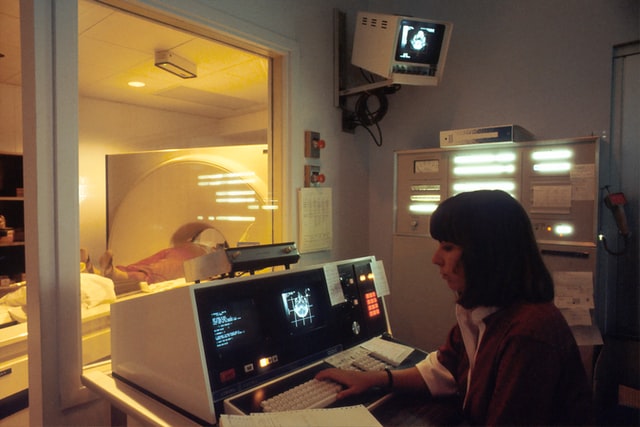Radiologists Face Ethical Challenges in Today’s World
Introduction
Today, in the contemporary world, radiologists face a number of ethical challenges that not as same as compared to the issues faced by other physicians in the healthcare field. This is because of the fact that the interaction between the physicians and patients is not the same as the other fields. The issues that radiologists are challenged with on a daily basis include speeding up of imaging studies for patients, specialty care gate-keeping, wait lists, queue jumping and corresponding the individual and societal needs. Thus, it is required of every radiologist to persistently stabilize and re-examine the ethical and legal responsibilities that lies on his/her shoulders towards the patients in particular and society in general (Cunningham, Reid, MacSwain & Clarke 170).
Ethical Issues in Radiology
The radiologists have remarkable responsibilities towards their patients and it is their duty to do everything that can be done for making sure that they provide the highest quality to their clients/patients. In case of degradation of the care value, it is the ethical obligation of radiologists to write or speak to support their patients. It is exceedingly important for a radiologist to understand the importance of ethics in this profession and this is the reason why he/she must have a conscience and sense of responsibility in him/her. Everyone who is related with the mentioned profession is bound by conduct rules and regulations for respecting the trust, dependence and confidence placed in them. The radiologists have the responsibility of serving as advocates of their clients/patients for giving them protection.
Jumping The Queue
The attempt of “jumping the queue” has turned out to be a main ethical issue in the field of radiology and unfortunately, both the patients and physicians are involved. People have developed a habit of using personal connections for seeking health care in a timely manner and in doing so, they take prior consideration or a number of other benefits out of turn or illegally. The physicians use their positions in order to help relatives and acquaintances jump the queue and get hold of the advantages unjustly. This ethical issue needs to be strongly condemned and personal favors must be discouraged as this is an extremely unfair way as far as fairness in the job is concerned. It is the responsibility of the physicians to reassess the ethical implications to their clients, society and occupation when they are requested for queue jumping. As radiologists have accessibility to vital public goods, they must think about laws and codes and determine their strategies by reasoning clinically and morally. Thus, it is highly required of the radiologists to weigh harms and benefits of queue jumping and maintain deferential relationships with patients, relatives and others they know personally/professionally (Cunningham, Reid, MacSwain & Clarke 171).
Prolonged Waiting Times
As far as wait lists are concerned, they have also emerged as a major ethical issue in the field of radiology resulting in adverse psychological consequences for both the patients and their families. Prolonged waiting times have the tendency of interfering with the functioning of the clients/patients and going back to work. In some cases, lengthy wait have even resulted in morbidity and death. In a number of settings, the scarcities or absence of resources are made worse due to wait lists as hospital beds are occupied by patients until they get their due treatment interventions. The radiologists who try their best to provide best services to the patients are also challenged by wait lists as wearisome obstructions in discharging their duties. It is the need of the time to regulate rules and regulations concerning wait lists and make useful mechanisms for making sure that fair access is offered. In additions, steps are to be taken for wait lists’ tracking and evaluation (Cunningham, Reid, MacSwain & Clarke 173).
Preferential Care
Preferential care is another ethical challenge that the radiologists face in the present times. It is not a good practice to provide care to those first who exercise some kind of influence in the society or have a close association with the concerned radiologists/physician. This is again unfair to the ones who have been waiting long to get access to the care they wish to receive. If diagnosis is delayed, there are higher chances of patients becoming completely disabled. Therefore, preferential care is to be highly discouraged except in times when the patient needs immediate attention (Cunningham, Reid, MacSwain & Clarke 174). It is, therefore, required by every radiology-related personnel to evaluate ethical issues and “policies before their implementation to ensure that the benefits will not be outweighed by the harms” (Fey 1118) for the patients in particular.
Haste
Haste is another major issue that raises an ethical concern in the radiology field. The law does not consider negligence as an error in judgment. It is expected of the radiologists to apply and give out sound care to his/her patients with efficiency and high competence. This is because radiology is a sensitive field and requires the associated employees to carry out their duties with utmost responsibility. Today, the radiology reports signed by the radiologists are considered before taking a decisive action about the patient’s treatment. At the same time, radiologists are considered as first culprits in case of any mishap, as they are the very last to get any praise, (Sohoni 110).
The issues discussed above do not at all imply that they must be solved overnight. However, it is a “fact that the nature of radiological modalities and radiology practice plays a very important role in feeding the errors” (Sohoni 112) and the ethical issues mentioned catalyze the situations negatively as a consequence.
Conclusion
To cut a long story short, the ethical issues discussed are to be considered seriously as one or another may result in increased mortality. Fairness cannot be compromised in any situation and by any healthcare professional, particularly the radiologists as their responsibilities are very critical. At the same time, it is also the need of the time to make sure that wait lists are also fair and systematic. Thus, it is the responsibility of the radiologists and related-physicians to make sure that they involve themselves and play a major part in pursuing better systems for the provisions and prioritizing of health care (Cunningham, Reid, MacSwain & Clarke 175).
In the current times, it has turned out to be a significantly important thing for the radiologist technicians to keep up their effectiveness and involve themselves in continuing education in order to evolve in their profession. This is absolutely necessary to be ethically educated for the profession they have chosen for themselves. The professionals associated with Radiology must go through the Standards of Ethics regularly in order to acquire up=to-date knowledge regarding any changes in the field. Even though radiologists have a number of ways to support and encourage their profession and patients, the best thing they can do about themselves and their clients/patients is to remain acquainted with the transforming legislations. It is their moral and ethical responsibility to make sure that the departments they work within follow the Standard of Ethics.
To conclude, radiographers make use of critical and independent judgment so they have a tremendous responsibility of making sure that ethical issues are resolved instantly.
References
Cunningham, N., Reid, L., MacSwain, S. & Clarke, J. R. “Ethics in Radiology: Wait Lists Queue Jumping.” Canadian Association of Radiologists Journal 64 (2013): 170-175. Print.
Fey, T. S. “Regulating Radiology: Ethical Issues in Mammography and Federal Legislation.” Journal of Women’s Health & Gender-Based Medicine 09.10 (2000): 1113-1118. Print.
Sohoni, C. A. “Medical Negligence: A Difficult Challenge for Radiology.” Indian Journal of Radiology and Imaging 23.01 (2013): 110-112. Print.

